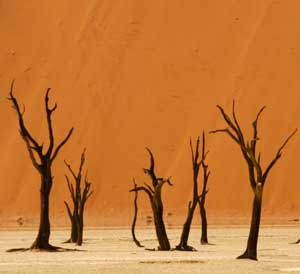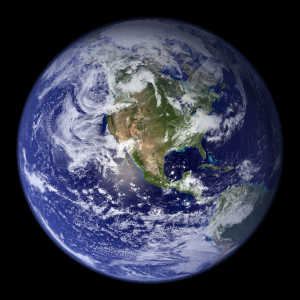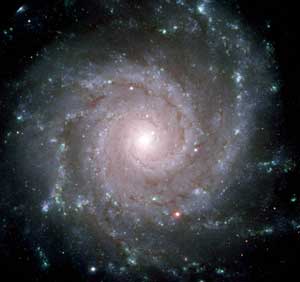Climate Change Anxiety, Eco-Distress & Grief
I believe that we are engaged in committing suicide: intellectual suicide, moral suicide and physical suicide. If there is anything as important as stopping us poisoning our seas and destroying our forests, it is stopping us poisoning our minds and destroying our souls.Ian McGilchrist


Societal Dysfunction, Climate Change, The Impact Of Eco-Anxiety, Climate Grief, Collective Trauma - What May Be Happening Inside The British Medical Journal describes eco-anxiety, eco-distress as a chronic fear of an environmental doom. We impact on the world (the inner affects the outer) and the world impacts on us (the outer impacts the inner). Valuing community, creation, life itself, all life, we may be personally and collectively be anxious about the planet, experience global grief. Many beliefs, assumptions and systems may be counterproductive to civilisation thriving, evolving. Examples may include inflexible, concrete thinking, the way we treat the planet, traditional left and right politics, money management (e.g. fractional reserve banking - loaning money that doesn't exist, qualitative easing - the artificial printing of money), excessive pride, narcissism. We may overlook that land gives us life and we co-create it, yet we may experience separateness and feel alienated from the dominant forces in the world, its emphasis on individualism when it discounts, community, environment, the planet. We may also be grieving humanity, unbalanced, unnatural and disrespectful ways of living. We may acknowledge lack of collective responsibility, global cooperation in psychologically dysfunctional societies, unsustainable social structures rooted in power dynamics in an inherently win-lose game, injustice, social inequality, where economic imbalance and profit, unhealthy competition is unaligned to human needs, or a softer, yet powerful, way of living. We may witness injustices, collective greed, narcissism and individualism, which harms other people and the planet, and is out of tune with community, the wider world, interdependence, interconnectedness. We may be affected by values system in society, that just aren't fit for purpose, alongside globalisation, privatisation of state assets, omnipotent thinking, rampant consumerism, where military might, nuclear weapons that can destroy the planet, financial institutions, economic growth and a one-size-fits-all expert system, denies local knowledge, ancient wisdoms of indigenous people who make no separation between mind, body, earth. Misuse of AI, biotechnology, genetic engineering may also concern us. Dystopian systems of conflict, control, oppression are not working. There is more of a globalised financial system than a globalised response to climate change beyond selfish national interests and borders, which the climate doesn't recognise. Distorting statistics, countries and companies try to show carbon neutral they are and what a great job they are doing, yet meanwhile the planet speaks a different language and there is a disconnection between the two. We too may have lost connection with others and the rest of the world, our own sense of belonging, been living as if separate from our body, each other and the environment. Understandably, we may feel disturbed by attitudes, actions (and non-actions) about earth's natural resources, nature. We may have a strong reaction to what we care about, including short-termism and lack of immediate and long term, sustainable action (carbon offsetting that looks impressive only on paper, camouflaging meaningless, placatory soundbite targets, which are modest and ineffective decades ahead). Inside we, and much of the society, may feel in collective shock, traumatised. We may blame ourself, feel guilty, ashamed. Self-forgiveness may be in short supply. We personally didn't agree for the way the world treats the planet and we are never going to change the climate on our own. We may have lots of feelings, reactions, thoughts, ideas in terms of the uncertainty of what's happening to the planet, how to create, healing, and the energy of the planet through energy work - for where we put our attention, energy flows. And it can be as if we overlook that each human being and nature are the same - not separate. We may judge ourself, also guilt, shame, feel fearful, frustrated, angry, outraged, grief, heartbreak. Reactions can be counterproductive if we remain immobilised, stuck, hopeless in this place or see people, countries either as good or bad. We may need a new paradigm.
We are in danger of destroying ourselves by our greed and stupidity.Stephen Hawking

Talking About State Of Planet Health, Eco-Anxiety, Eco-Distress, Climate Grief, A Crisis Of Political & Spiritual Consciousness & Action We may want to talk about our concerns, fears, responses regarding the environment and all the impacts, (global heating, climate crisis, climate emergency, climate anxiety, depression, eco grief, bio-diversity crisis, erosion, climate pollution, plant depletion, green issues, ecopsychology, ecologism, air pollution, nature loss, global change of ecosystem, species depletion, animal cruelty, extreme weather, energy crisis, social collapse, climate refugees, destruction, wars, death, ecocide, disharmonious effects upon our dysfunctional relationships). This can be called Anthropocene - how human behaviours and actions have influenced the climate, environment, through dominating, disrespecting nature, rather than being a respectful holistic participant with it, recognising that the environment is our home and richness (not just financial wealth preoccupation). We may also want to talk about the impact of monoculture, deforestation, depletion of essential minerals, zoonotic diseases from other animals jumping to humans, food production, over-population, and population displacement, water shortages through rainfall changes, patterns of changing climate. What goes on in the world impacts on us and the therapy offers a space to talk about our disturbance, numbness, impotence, grief, frustrations, stress and trauma, maybe anger and rage (all of which are appropriate responses about what's happening to the planet). Acknowledging the limitations of lifestyle changes, technology, we may feel frustrated by lack of radical system change and radical action by governments to stop climate catastrophe. The human brain may be wired to act only on immediate danger, which can therefore ignore the perceived drip - drip effects on climate change. As the botanist Robin Wall Kimmerer writes how indigenous cultures don't recognise land ownership, we may ask who owns the earth or are we custodians of it. We may have views on man's commodification of land - land grabbing, land buyoffs leading to people's dispossession, where corporate policy makers ensure global food prices are subject to stock market fluctuations. Re-evaluating what makes our life worth living, repairing what we can, remaining connected with nature, joy and supportive others, not overloading ourself with information, living for each day, being in the moment, may be important to us. As a human species we have been pretty good at innovation, adaptation - survived plagues, wars, migrations, natural disasters and previous climate change, taking may years of human evolution. And this climate crisis calls upon personal, local and global action. The therapy also includes exploring our relationship to nature and the environment - both the external environment and our internal environment - what's happening inside, alongside the existential threat of life. We may also want to talk about what crisis means for us - its impact and how it relates to feelings in our past. We can view this crisis as needing both practical and spiritual responses. Coming from the heart, we (and indeed all of us) may want to include or focus upon engaging in environmentally beneficial behaviours, consciousness in and beyond us, spirituality and abundance. We may want to add our contribution to personal and universal good, infinite creativity in order to sensibly contribute to using Earth's natural resources, healing the planet through relational responses, trusteeship, guardianship. Focusing on our helplessness, fears and dramas, shame and guilt, means this is what we create. The counselling for eco-anxiety, eco-distress, climate depression can be a space to talk about our specific concerns. This may include exploring how we can move from any rigid thinking, fear, dread, impending doom and catastrophe to appreciation, stewardship of the planet as guests in the world, towards building emotional resilience, hope, transformation focusing on our vision, supporting the economic, physical, emotional, spiritual health and cultural change of all and taking action towards serving life, building communities. This may begin by identifying what matters to us, focusing on small, constructive, meaningful actions acknowledging that the planet can't be fixed, but can be ethically managed. "Think global, act local" Patrick Geedes states. We may also want to explore our practical skills, innovations, emotional intelligence, creative imagination outside the box, networking and working collaboratively in communities, our communication skills in order to continue to enjoy life and be active towards climate justice, positive climate change and action as Shelly writes "Rising like lions in slumber". (For some of us it may also be important to realise that throughout millions of years the planet has gone through many cycles of profound climate change.)
All things in nature, even the universe itself, have their span of existence, birth and death, beginning and ending.from Amaravati Buddhist monastery writing of the meditation teachings of Ajahn Sumedho
All that we perceive, and can conceive of, is change, it is impermanent. So it can never permanently satisfy you.

Different Paradigm For Sustainability In terms of sustainability, the way things are in the world may not be working for many of us. And it could be said that the world is focusing on the wrong things, especially when it feels dystopian, alienating from the heart, mind, spirit and is out of tune with ourself, community and the wider world, our interdependence, interconnectedness, oneness, unity and shared purpose (see also Societal Dysfunction, Climate Change, The Impact Of Eco-Anxiety, Climate Grief, Collective Trauma - What May Be Happening Inside). Global problems ultimately need both local and global solutions, requiring structural shifts. As long ago as 1987 the UN's Brundtland Report (also called Our Common Future) attempted to define sustainability "Development that meets the needs of the present without compromising the ability of future generations to meet". The British Quaker movement back in 1988 made a clear statement acknowledging the sanctity of life, that the human footprint on the globe needs to be light and undamaging: "Our planet is unstable, seriously ill and we can feel the pain. We have been reminded of the many ways in which the future health of the earth is under threat as a result of our selfishness, ignorance and greed. Our Earth needs attention respect, love, care, and prayer". We may see that unloving, universal damage has been done to the planet, now requiring universal love and action - prioritising the planet in all our lives. Acknowledging the need for reparation, the Quaker movement define sustainability as living in a way we bequeath to the next generation that leaves the planet in the same or better state through stewardship and address the need for "sustained" sustainability through a number of qualities: truth, equality, simplicity, beauty, peace (see also Peace Of Mind, Stilling Our Mind, Contentment, Inner Peace, Internal Calmness - What May Help). This goes against our current ways of living, as if we humans possess, own the planet, necessitating a paradigm shift towards a visionary landscape in our minds, including guardianship, trusteeship, stewardship. The impact of our inner world affects the outer and the impact of the outer world also affects our inner world. As in relationships, there can be an imbalance between givers and takers, and how we give and take from the planet may need to be changed, transformed. Radical problems need radical solutions. And we have yet to discover, decide upon, act with different sustainable ways of living, e.g. a softer life - powerfully, only contributing towards sustainable investments, economics (this may need radically tackling inequality, redistributing finance on a global scale) embracing universal principles, tuning into forms of energy, consciousness, co-creation. Placing healthy sustainability in all its manifestations may need a fundamentally different global paradigm, rising above narrow state interests. We may need to acknowledge what connects and disconnects us, what is disharmonious, harmonious, what's happening to the planet as a spiritual crisis, requiring spiritual solutions, supported through spiritual depth, consciousness both in and beyond us with planet-sustaining living and actions.
The world we have made as a result of the level of thinking we have done thus farAlbert Einstein
creates problems we cannot solve at the same level of thinking at which we created them.

New Paradigms We may feel duped for going along with corrupt forces, misguided leadership, failure to adapt and take heartfelt, conscious action above party politics, political polarisation. (The climate is in action, yet we may experience our leaders' inaction with vacuous, warm words without deeds or no serious global leadership.) Utilising critical thinking, moving towards momentum, we may want to be more empathic, active, creative out in the world, towards making, adapting communities more resilient, transforming radical change, holding our politicians and their petty tribalism to account and no longer be puppets to the puppeteers (for the planet is uninterested in party politics). Democracy is intended as a powerful tool for justice and equality and at its core is supposed to be about transparency and accountability, built on principles of respect for human rights, collective decision-making through open dialogue and needs safeguarding to protect subversion. We may question what is the point of democracy if on the surface it's a seemingly functional system, yet also a veil to protect the interests of corrupt institutions and (ironically a select few) individuals - where concentrated power lives, or with people who have deceitful, selfish, harmful goals, that may be manipulative or corrupt, spreading false information. Democracy can be experienced as a facade, with illusions of control, when it claims to uphold democratic values, yet manifests within hierarchical controlling communities, overrides egalitarianism, civil liberties, where checks and balances are ineffective, which actually oppress rather than liberate. Powers that exist are not always acting in the best interest of people. Power may need to be redefined as not coming from external forces, material successes and wealth, exploited by those in control through misinformation, censorship for divisive narrative, undermining public trust. These old paradigms promote separation, division, fear and depletion. Structures we once relied upon may no longer serve us or the planet and may be collapsing. As we let go of our old ways, new possibilities can emerge. It may therefore be crucial for systems to be informed, vigilant and engaged in order to resist forces, that may seek to undermine true democratic principles. Transcending the limitations of the past, a reworking of political systems, which enhances democracy, towards an inclusive way of living compassionately and spiritually awakened and aligned, honours life's sacredness, interconnectedness, a green economy, tuning into forms of energy, valuing consciousness in and beyond us may be called for. And co-creating a new reality may well take radical ways of thinking, clarity, courage, Love, faith.
